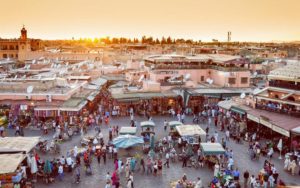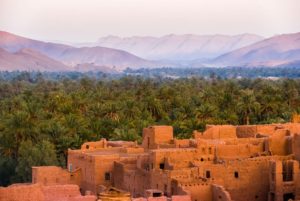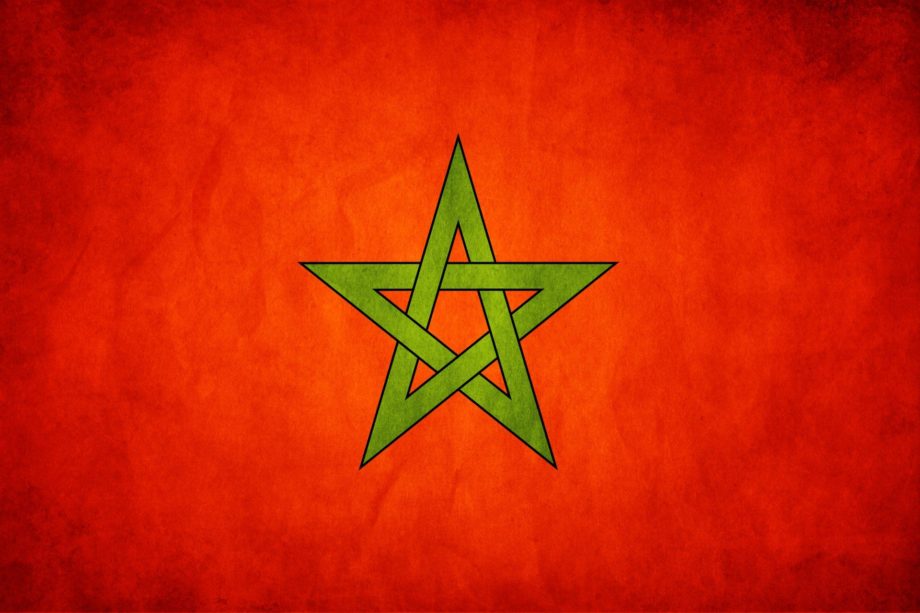Study in Canada Morocco

Study in Canada Morocco
Sometimes referred to as the Kingdom of the West, Morocco is located in the Maghreb region of North Africa. It borders Algeria and Western Sahara. The state also has access to the Mediterranean Sea and the Atlantic Ocean. About 37 million citizens live in an area of 446,300 km2. Residents of Morocco have Berber, Haratin, Gnawa, West African, Morisco, French and Spanish origins.
The official languages of the state are Arabic and Berber. However, French is an obligatory language to learn in schools across the country. French is used in governmental institutions, media, mid-size and large companies, international commerce with French-speaking countries, and international diplomacy. English is far behind French in the number of speakers, but it is the preferred foreign language among educated youth and professionals.
According to UNESCO, Morocco has the oldest continually operating university in the world. The University of Al Quaraouiyine was established in 859 by Fatima al-Fihri, who was the educated daughter of a wealthy merchant. Located in the city of Fez, the university is one of the leading educational and spiritual centres of the Arab Muslim world. Now, the main focus of this university is Islamic legal and religious studies.
By the way, Morocco is among the main hubs of tourism in North Africa. The political stability, government initiatives, and nine UNESCO World Heritage Sites fuel the growth of tourism in the country. All sites have exceptional cultural, historical, and architectural values that make them worth discovering.
Besides the historical and cultural treasures, Morocco has many natural wonders. Tourists can enjoy the coastlines of the Atlantic Ocean and the Mediterranean Sea, summit the lofty peaks of the snow-clad Atlas Mountains and explore wide expanses of the Sahara Desert. It is also worth visiting the Vallée des Roses. Each year, the valley produces 3000 to 4000 tons of wild roses. Most of them are sold to French perfume companies, while local companies use the rest to produce rose water, soaps, and other beauty products.
Today, Morocco has the fifth-biggest economy in Africa and influences both Africa and the Arab world. The services sector, tourism, information technology, textile, and industries, such as mining, construction, and manufacturing, account for the high GDP of the country. The state is a member of the Arab League, the Union for the Mediterranean, and the African Union.
Since most citizens of Morocco speak French and English, they prefer to live and study in Canada. According to the recent census, about 103,000 people of Moroccan ancestry live in the country. Mainly, they settle in the province of Quebec, but there are communities in Toronto, Vancouver, Ottawa, and Winnipeg. The applicants from Morocco, who plan to study in Canada, tend to apply to the schools in the places with a large Moroccan diaspora.
Now, nearly 5,000 students from Morocco study in Canada. Indeed, Morocco is one of the top 10 source markets for Canadian schools. As a rule, students from Morocco are interested in university programs. Only one-third of prospective students choose to study in Canada at public colleges.
Since French and English are the widely spoken languages in Morocco, a few students pursue language programs in Canada. Still, students from Morocco must meet the language proficiency requirements to study in Canada. They can demonstrate English or French proficiency through recognized language tests. Applicants can pass TOEFL, CAEL, MELAB, or IELTS to study in English-speaking schools. If students from Morocco decide to study in Canada at institutions with French as the medium of instruction, they ought to pass TEF, TCF, TFI, or TEFAQ.

To study in Canada after Morocco, international students can also prove their language proficiency through former education. They can complete at least two consecutive years at a recognized secondary or post-secondary school where French (English) is the primary language of instruction and communication. Also, prospective students can complete an English language course from a recognized Ontario Secondary School Diploma (OSSD) granting institution.
Considering the study in Canada, it is better to contact the chosen Designated Learning Institution for further details. Study programs, such as Practical Nursing and Pharmacy Technician, have additional language proficiency requirements, while some schools do not have the language proficiency requirements for students from Morocco.
Now it is time to discuss the peculiarities of the study in Canada for students from Morocco. Predictably, most of them apply to study at Quebec-based institutions and Toronto’s schools. In the province of Quebec, the most popular public schools are Concordia University, Université Laval, McGill University, and Cégep Heritage College. International students who decide to study at one of these schools should be ready to pay from 12,000 to 25,000 CAD per year.
Concordia University offers 400 undergraduate and 200 graduate programs. Among the students from Morocco, the most popular programs are Civil Engineering, Accountancy, Marketing, and International Business.
Université Laval is a French-speaking school that has over 300 programs. As a rule, international students choose programs in Administration, Architecture, Law, and Nursing.
Students choose McGill University as a place to come and study in Canada from Morocco since it is one of the most reputable institutions in the country. Among 300 undergraduate and graduate programs, students from Morocco tend to choose Business, Health Sciences, Politics, and Law courses.
Cégep Heritage College offers international students to study in Canada after Morocco and pursue the two-year pre-university programs in Visual Arts, Social Science, Liberal Arts, Science, and Commerce. The school also has three-year technical courses in Computer Science, Nursing, Electronics Technology, Tourism, and Hospitality Management.

Prospective students who decide to come and study in Canada from Morocco and want to live in Toronto apply to OCAD University, Toronto Metropolitan University, York University, and Seneca College. The tuition fees at these schools range from 7,000 to 19,000 CAD per year.
Students from Morocco often apply to OCAD (Ontario College of Art and Design) University. It offers undergraduate degrees in Fine Arts, Visual and Critical Studies, and Design. It also has popular master’s programs in Art Media, Design, Strategic Foresight, and Innovation.
Toronto Metropolitan University is one more place to come and study in Canada from Morocco. Applying to this school, students from Morocco prefer to pursue Accounting, Finance, and Business Management programs.
York University is a preferred place to study in Canada since it offers high-quality and affordable programs in Engineering, Business, Law, Education, Health, Environmental Studies, and Fine Arts. Students from Morocco have a chance to choose a study program from 120 undergraduate degrees of 17 types.
The other place to study in Canada is Seneca College. It offers a variety of certificates, diplomas, bachelor’s, and post-graduate degrees. The most popular programs among students from Morocco are Business, Health Sciences, Information Technology, and Aviation.
Students from Morocco who choose to study in Canada must obtain a study permit. It is an official document that allows them to pursue study programs at Designated Learning Institutions (DLIs). Residents of Morocco can get it within 20 business days through the Student Direct Stream (SDS).
If prospective students from Morocco want to apply for the study permit through the SDS, they must provide the Letter of Acceptance, submit the tuition fee receipt, have a Guaranteed Investment Certificate (GIC) of at least 10,000 CAD, submit the most recent school transcripts, and pass the IELTS or TEF test. International students who plan to study in Canada and apply to the school in Quebec also need to provide a Québec Acceptance Certificate (CAQ) from the Ministère de l’Immigration, de la Francisation et de l’Intégration.
The high interest in the study in Canada among students from Morocco can be explained by the post-graduation work permit (PGWP) implementation. Recent graduates apply for a PGWP to gain work experience and immigrate to Canada. To put it another way, students from Morocco must complete at least a two-year study program, get a PGWP, gain at least a year of work experience, meet the eligibility requirements of the immigration program, and wait for the immigration application approval.
In case, if you need help with admission and study permit in order to study in Canada from Morocco, please fill in application below or contact us directly.

